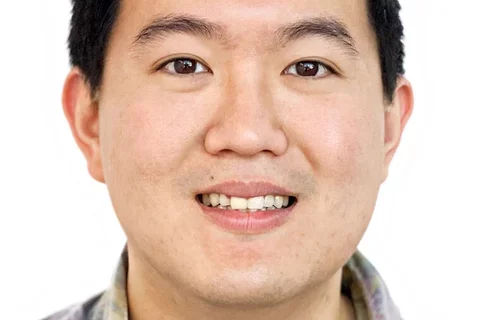Andrew Lu, MD/PhD '27 Receives Paul and Daisy Soros Fellowship for New Americans

Today, the board of directors of The Paul & Daisy Soros Fellowships for New Americans, a merit-based graduate school program for immigrants and children of immigrants, announced the program’s 2022 Fellows. Chosen from a pool of over 1,800 applicants, the 30 Paul & Daisy Soros Fellows were selected for their potential to make significant contributions to the United States. They will each receive up to $90,000 in funding to support their graduate studies.
“Immigrants, asylum seekers, and refugees are an essential part of the United States. The Paul & Daisy Soros Fellows demonstrate the ingenuity and diverse perspectives that immigrants of all backgrounds bring to America’s graduate programs and to the country as a whole,” Fellowship Director Craig Harwood said of the new Paul & Daisy Soros Fellows.
In addition to receiving up to $90,000 in funding for the graduate program of their choice, the 2022 Fellows join the prestigious community of past recipients. The active alumni network includes US Surgeon General Vivek Murthy; Olympians Amy Chow and Patricia Miranda; US Ambassador to Spain Julissa Reynoso Pantaleón; Stanford AI leader Fei-Fei Li; computational biologist Pardis Sabeti; composer Paola Prestini; Maine CDC Director Nirav Shah; Aspiration CEO Andrei Cherny; award-winning writer Kao Kalia Yang, and more than 715 Fellows.
Andrew Lu was born in Tainan, Taiwan but has moved around all his life, spending his formative years across Taiwan, Canada, and the United States. Frequently moving around has made him comfortable with change, something that Andrew believes is reflected in his winding career trajectory. In high school, Andrew founded his high school’s computer science club and dreamed of becoming a software engineer, leading him to attend UC Berkeley.
After a personal encounter with disease, and a serendipitous introduction to science, Andrew became increasingly drawn to biology and medicine. These events led to Andrew dropping out of college after sophomore year. He started working full time in a biology laboratory and helped co-author a paper on mechanisms of cancer recurrence. This experience confirmed Andrew’s interests in biology, and he decided to return to Berkeley. Back in school, Andrew helped develop a method to identify the set of proteins that control how genes turn on in health and in disease. After graduation, he co-authored a manuscript at UCSF using high-resolution, single-cell methods to perturb and study cells of the human immune system.
Today, Andrew is a MD-PhD student at the David Geffen School of Medicine at UCLA and Caltech, respectively. In medical school, Andrew developed a computational method to understand how our DNA can make us more susceptible to diseases. With collaborators, Andrew applied this method to two other studies to understand genetic contributions to lupus and other diseases.
Since starting his PhD in biology at Caltech, Andrew has joined the synthetic biology laboratory of Michael Elowitz. While biology is traditionally concerned with studying life as it naturally exists, synthetic biology seeks to extend biology by creating brand new, artificial behaviors that have never existed before. In the Elowitz Lab, Andrew contributed to a project characterizing a synthetic genetic circuit that allows cells to control their own population size, a process known as quorum sensing. Andrew’s main project in the Elowitz Lab is to build synthetic signal processing modules that allow detection of therapeutically relevant disease signals. Andrew’s career goals are to combine his training in medicine and science to build a new generation of therapeutics leveraging recent advances in synthetic biology and oncology.
Original Articles: "https://www.pdsoros.org/news-events/announcement-the-2022-paul-daisy-soros-fellows" & "https://www.pdsoros.org/meet-the-fellows/andrew-lu"



